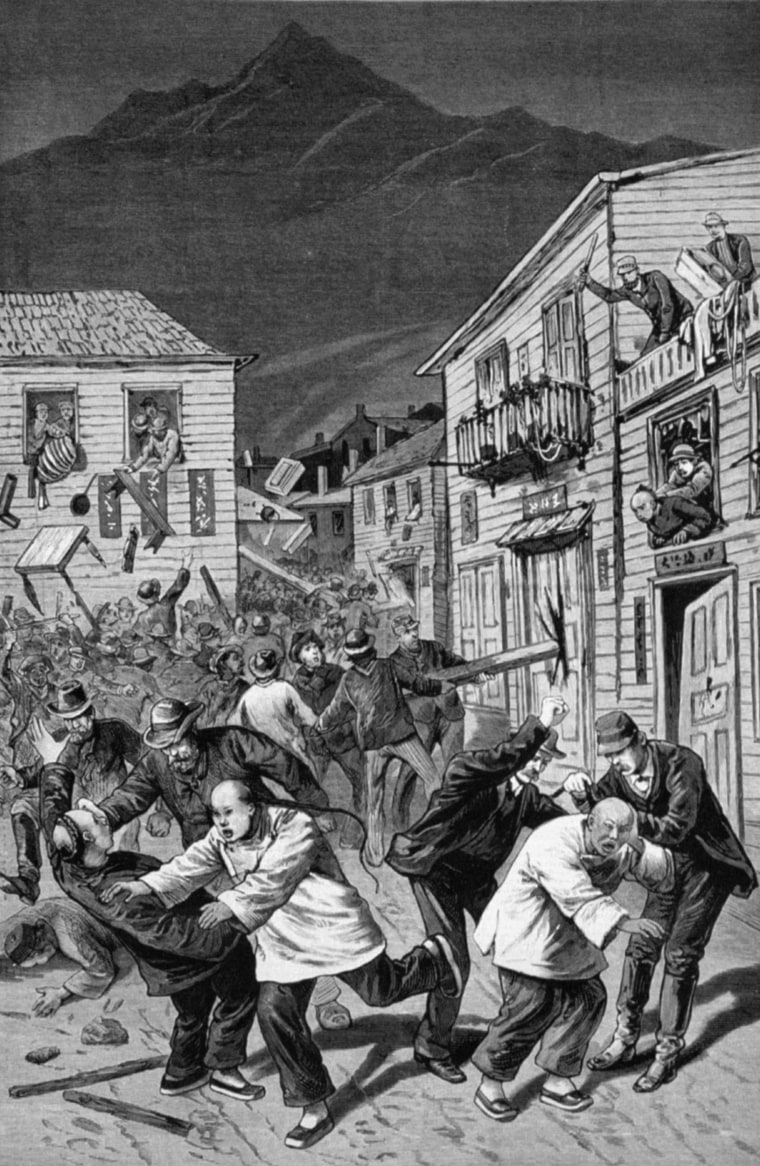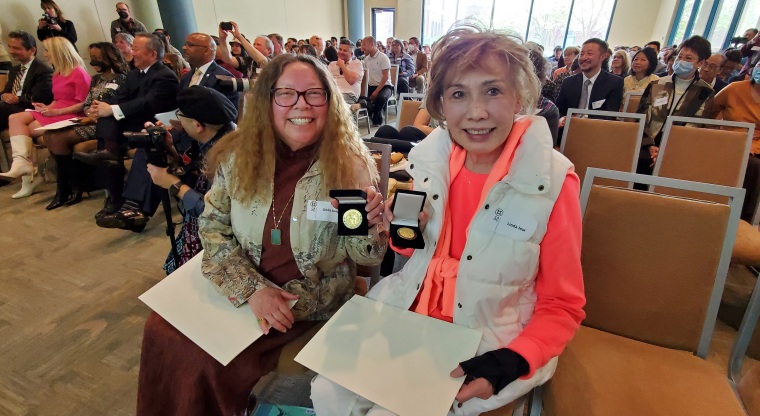Linda Lung, whose family owned businesses that were destroyed during an anti-Chinese riot in Denver in 1880, said a recent apology from the mayor for the riot carries a lot of weight.
“It’s the recognition,” Lung, 69, who lives outside of Denver, said. “For a long time, it was kind of just like, ‘Oh, let’s not talk about this.’”
The city of Denver held a ceremony Saturday to formally apologize to early Chinese immigrants and their descendants for riots that ravaged the city’s Chinatown and left one person dead.
Despite the loss of the city’s Chinatown, Lung said her family has thrived in Denver for several generations. She said she feels it’s a testament to their resilience.
“We were successful there and we still are,” Lung said. “There’s also a vision of hope … to capture all these stories and say there is a history and we don’t want to lose that rich history of Denver, Colorado, having a Chinatown.”

The Asian American advocacy group Colorado Asian Pacific United (CAPU) led the ceremony to help raise awareness about the attack’s lasting impact on the city’s Asian American community. In a letter, officials stressed that they want to reconcile with the city’s history of discrimination and violence targeting Chinese Americans.
“While the city cannot erase past injustices against Chinese immigrants and the Asian American and Pacific Island communities, the city owes them a long-overdue apology,” the officials wrote. “An admission of the wrongs committed and its failure to correct them is a first step towards recognizing and honoring their contributions and can contribute to racial reconciliation.”
The letter continued: “It will also serve to educate those who are ignorant of this shameful chapter in Colorado’s history and hopefully bring some closure to the families whose loved ones suffered racial violence and abuse.”
Today, Asian Americans make up 4 percent of Denver’s population, according to the U.S. census.

CAPU Vice Chair Joie Ha said the city’s acknowledgment is a step toward coming to terms with Denver’s racist history.
“We’re being seen,” Ha said. “Oftentimes, Asian Americans are the invisible minority. A lot of things that go on in our community aren’t really taken seriously; they’re brushed under the rug.”
But this moment is different for Ha and other Asian Americans in Denver.
“It’s a start, and I think that is really encouraging, especially for some of the older families that have been here for generations,” Ha said. “Their contributions to Denver and Colorado as a whole are taken seriously … and the struggles that they went through are also being noticed and being acknowledged.”
The anti-Chinese riot of 1880 started after an argument in John Asmussen’s Saloon, which eventually led to a white mob descending on the city’s Chinatown and destroying businesses. A young man named Look Young was beaten and killed.
A plaque to mark the site, titled “Hop Alley/Chinese Riot of 1880,” has been criticized by advocates for the Asian American community as racist.
“The Caucasian population had called it Hop Ally, which is a derogatory term in the sense that the Hop Alley was referencing all of the opium dens in Chinatown, despite the fact that everyone at that time partook in opium,” Ha said.
In the wake of actions by other cities, Lung said the most important question is, “How can we go in and move forward from this?”
Cities such as San Jose, Los Angeles and San Francisco have also issued apologies for a history of racism targeting Chinese American residents. The apologies come amid a 339 percent rise in anti-Asian hate crimes last year compared to 2020, according to data published by the Center for the Study of Hate and Extremism.
Derek Okubo, executive director of the city’s Agency for Human Rights and Community Partnerships, called Denver’s involvement in the anti-Chinese riot “shameful,” adding that its effects continue to take a toll.
“It’s all about healing the trauma of such a horrific incident,” Okubo said, noting that the city will continue to partner with community organizations and educate others, “so that nothing like this can ever ever happen again.”
Ha hopes the city’s apology can inspire further support for the Asian American and Pacific Islander community.
“We can’t say OK, the city has apologized and now everything is perfect,” Ha said. “We understand that this apology also needs to come with substantial efforts to change and to support the AAPI community as a whole.”
Source: | This article originally belongs to Nbcnews.com









